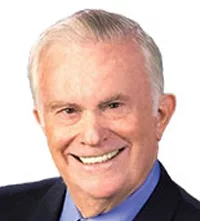For the many wonderful followers of the pipe-valves-fitting (PVF) business, this major American industry sector is identified by individual personalities respected by the industry at large.
Having had that honor for many years, I doff my hat to NIBCO Chairman Rex Martin, whose outstanding predecessor, Lee Martin, has led this ever-expanding valve superstar to follow those of us bearing this title.
NIBCO and its acquisition of Milwaukee Valve in 2019 was one of strong competitors; fourth-generation leader Rex Martin has followed his forebears in further acquiring Matco-Norca. NIBCO completed its acquisition of this competitor on Feb. 1 of this year.
In the current age where some companies are only surviving, it’s gratifying to know that still-great companies such as Weldbend retain the memory of the PVF sector. They maintain the past, in which I gloriously played a part in this industry.
As many may not know, I came close to accepting an invitation by Lee Martin to join NIBCO in Elkhart, Ind. The PVF sector, as such, was stumbling under business pressure in those days. My strong love for our PVF sector seemed to cave under the pressure of those times, but I finally decided to tough it out.
Congratulations to you, Rex Martin, and others who have kept thriving in our great industry.
Why Father/Son Industry Succession Thrives
Having received the economic benefits of active involvement in the manufacturing industry’s PVF sector, this was particularly impressive in the way of benefits to all concerned: sons succeeding their fathers. The next generation was ready to take over in an industry that highly prioritizes personal knowledge, something these jobs demanded.
This became a solid step forward in a growing industry as those new generations entered the business.
In the PVF sector, this became dramatically critical as the competition was strong, and the specifics were very hard to come by. Such benefits could only be obtained by experience and a reputation gained by contact and acceptance by the distributors and end-users that this multibillion industry represents.
My more than 50 years in the industry has given me knowledge of the positive aspects of uniqueness that competition possesses, and it is necessary to make good competition where needed.
This can only be gained by the experience of having benefitted from similar contacts. As I reach my mid-90s, I have found my previous personal connections with the industry’s movers and shakers particularly successful. They are highly desirable to confer with when I do my daily writings and give me counsel and beneficial experience where desired.
Investors Favor Money-Market Funds
Despite the hard-hit stock market of recent years seeming to fade due to the shift to Federal Reserve bonds, money market funds seem to be the exception.
Investors have added almost $135 billion to global funds in the first part of February 2023 than in the nearly three years since the end of May 2020.
A money market fund is a mutual fund that invests in short-term debt securities. This includes treasury bills and commercially aligned companies. Consumers often use them as checking accounts to store their ready cash. Suddenly, holding onto ready money made increased sense.
Increased cash allocations are the latest signs of caution among investors questioning whether the recent rebound to stocks and bonds will continue after last year’s steep selloffs. Many investors expect markets to remain volatile because Federal Reserve officials have said they are committed to fighting inflation with higher interest rates.
Instead, investors piled into current stock market funds following the 2008 financial crisis. However, soon that approach stopped working — to be replaced by red-hot inflation. It seemed that holding onto cash for an arena of unknown time made sense again.
But included were “money funds” that closely related to the position of cash while maintaining the “professional direction of cash” in the hands of experts.
This factor makes even conservative investors feel that holding cash is now in the hands of experts, who will know what to do, and when. Such a balance is increasingly understood to not take any more risks at a time when all investment types might become disastrous.





